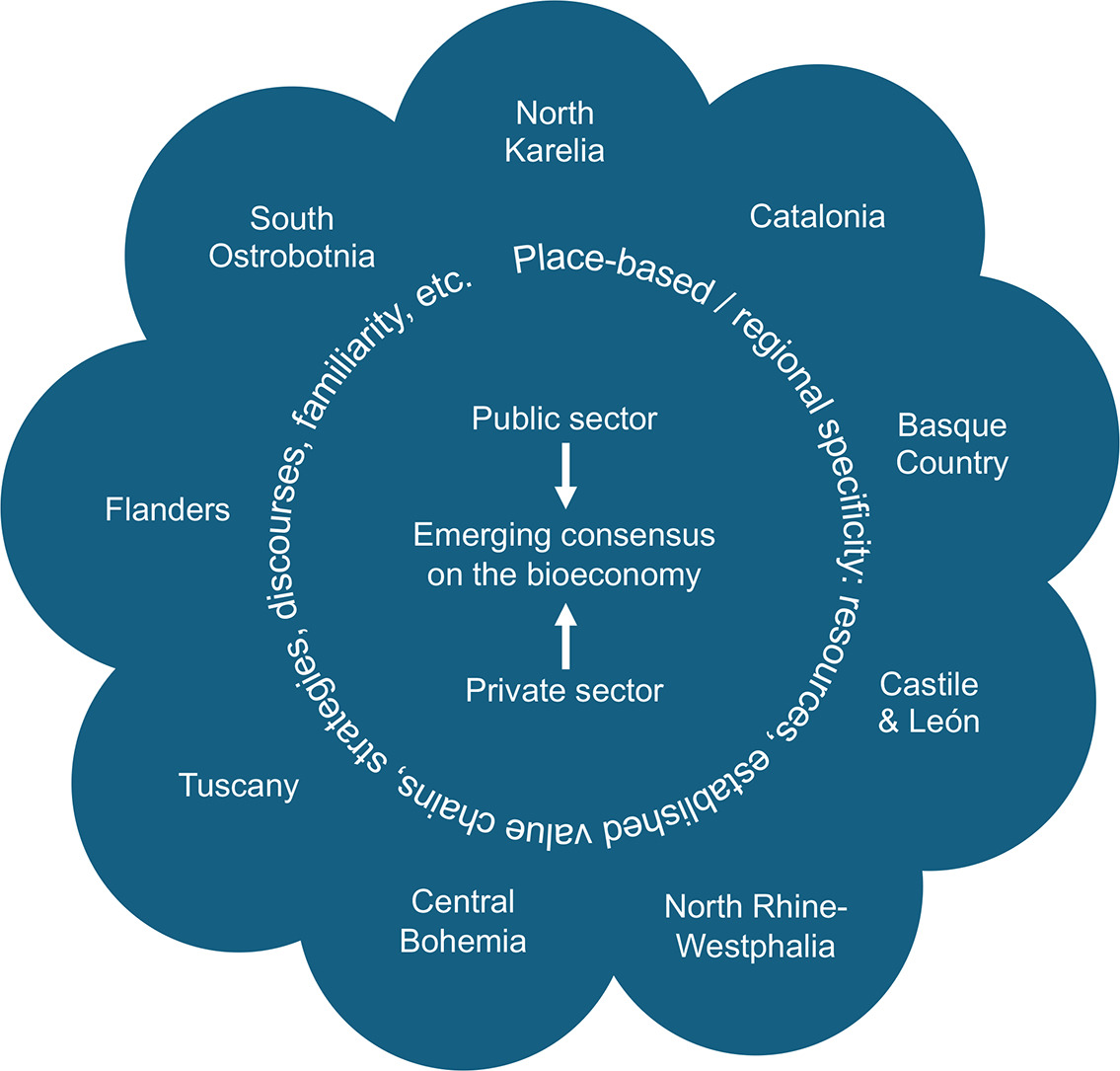A new study provides a unique lens into how the bioeconomy is perceived by both public and private sector actors across nine European regions. As the bioeconomy gains recognition as a solution to complex global challenges, it requires collaborative efforts from diverse stakeholders to create sustainable, resilient economies. The public sector plays a role through strategies, policies, and regulations, while the private sector drives innovation, investments, and market implementation.
The study explores bioeconomy perceptions based on 534 survey responses, assessing familiarity with key concepts, value chains, benefits, and risks in each region. Rather than adopting a traditional top-down approach, the research focuses on practitioners’ insights, with surveys conducted in local languages to capture a nuanced understanding of regional perspectives.
Key Findings
-
Positive Views with Varied Understanding
While most respondents express optimism about the bioeconomy, especially those with high self-rated familiarity, these positive views may not fully account for the bioeconomy’s potential drawbacks. This discrepancy indicates a need for more balanced discourse on both the advantages and the risks involved. -
Environmental and Socioeconomic Balance
The bioeconomy’s environmental benefits are widely recognized, but respondents also stress the importance of socioeconomic factors. Notably, personal risks, such as economic challenges, often conflict with broader societal benefits, underscoring the need to balance environmental and social priorities for a truly sustainable bioeconomy. -
Regional Specificity and Sectoral Focus
A general agreement on the bioeconomy’s core elements exists across regions, but focus areas differ. Sector-specific priorities and regional conditions suggest that a uniform bioeconomy model may not be feasible, highlighting the importance of customized policy approaches that address unique local contexts.
Implications for Policy
The study underscores that a sustainable bioeconomy must reconcile environmental and socioeconomic objectives, accommodating region-specific priorities. For policymakers, the findings emphasize the importance of tailoring bioeconomy policies to regional conditions rather than applying a one-size-fits-all strategy, thus supporting resilient, adaptable growth in the sector across Europe.
Read the full article here: Shaping the bioeconomy: Public and private sector perceptions across European regions
